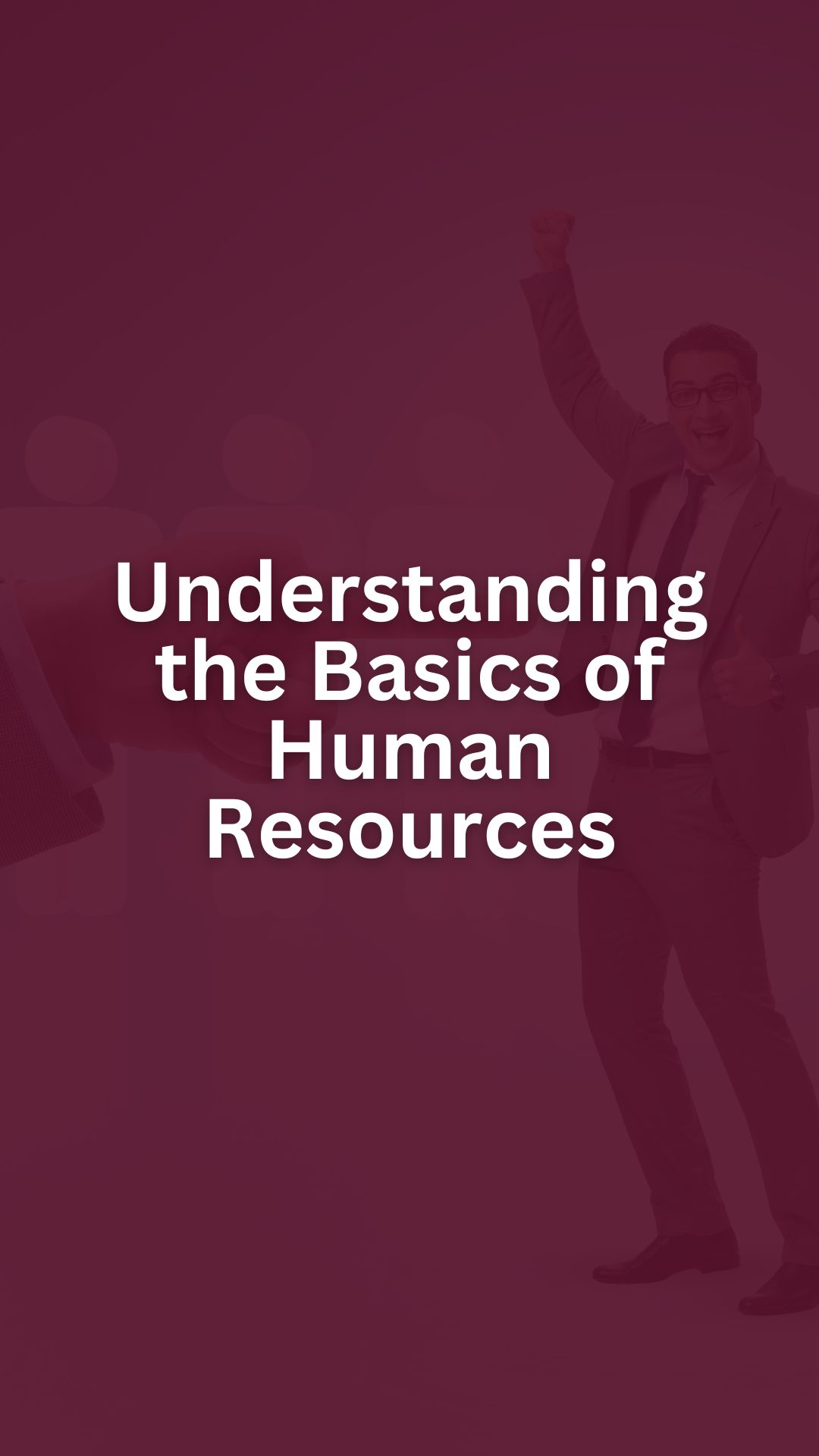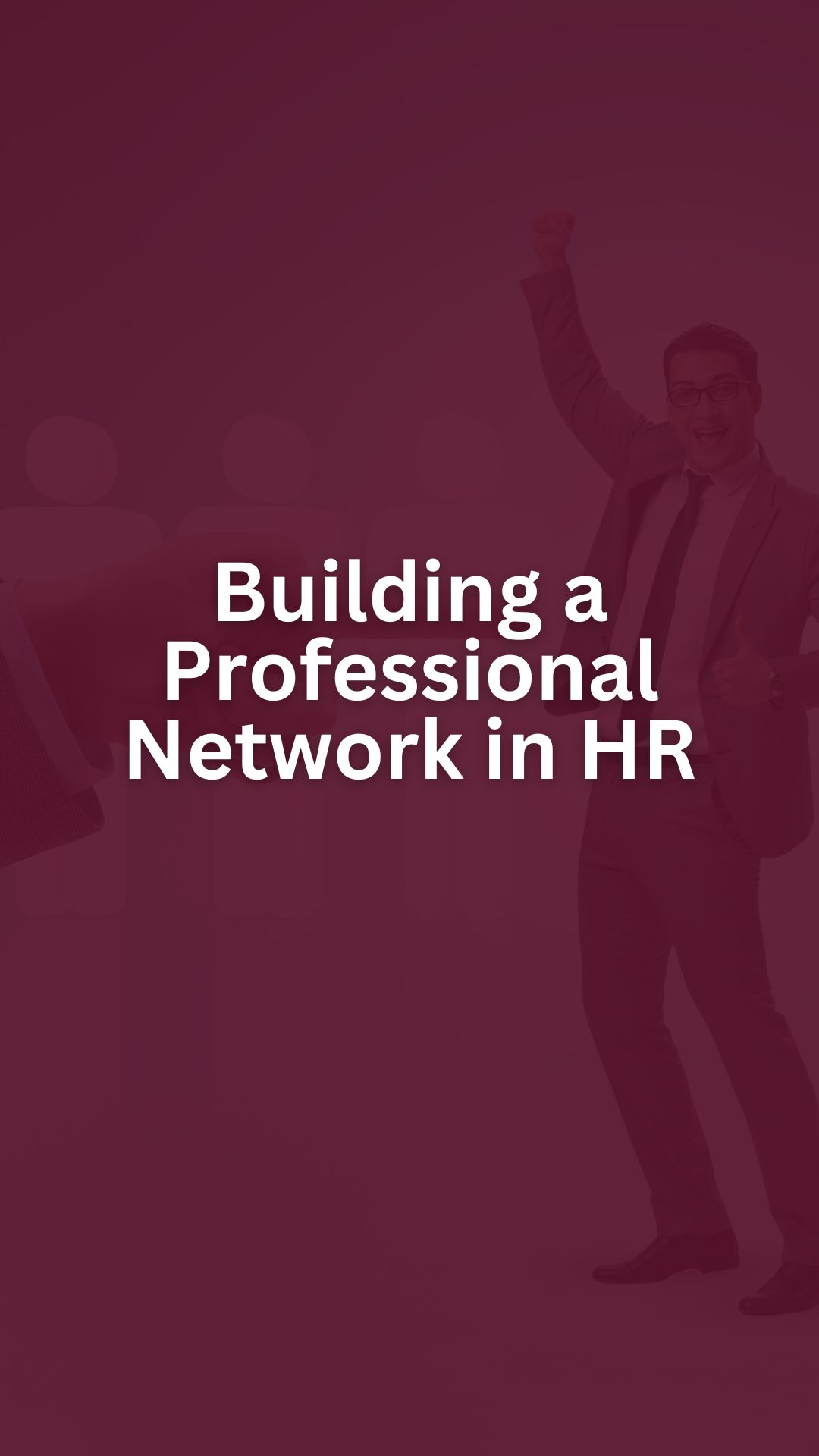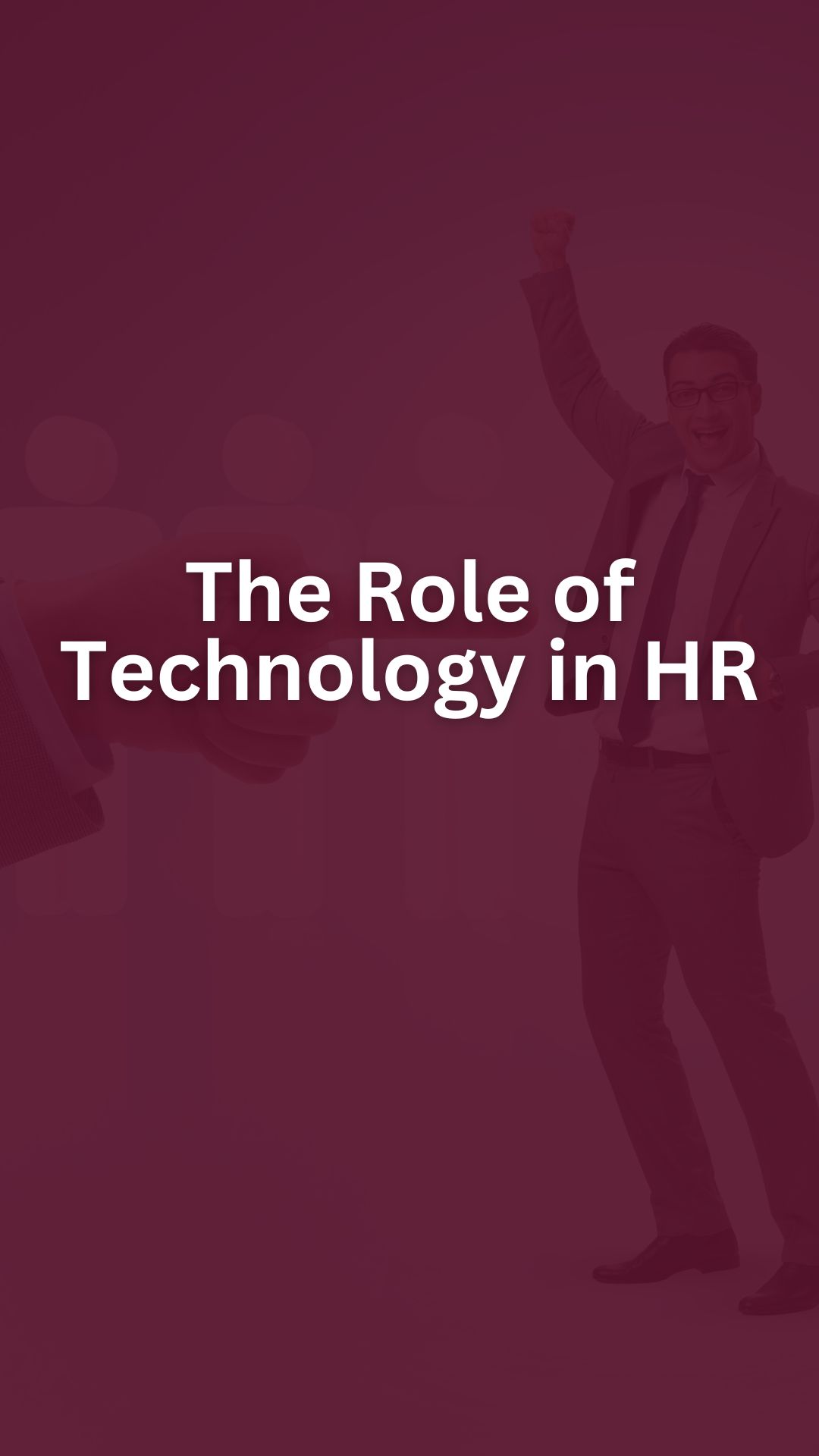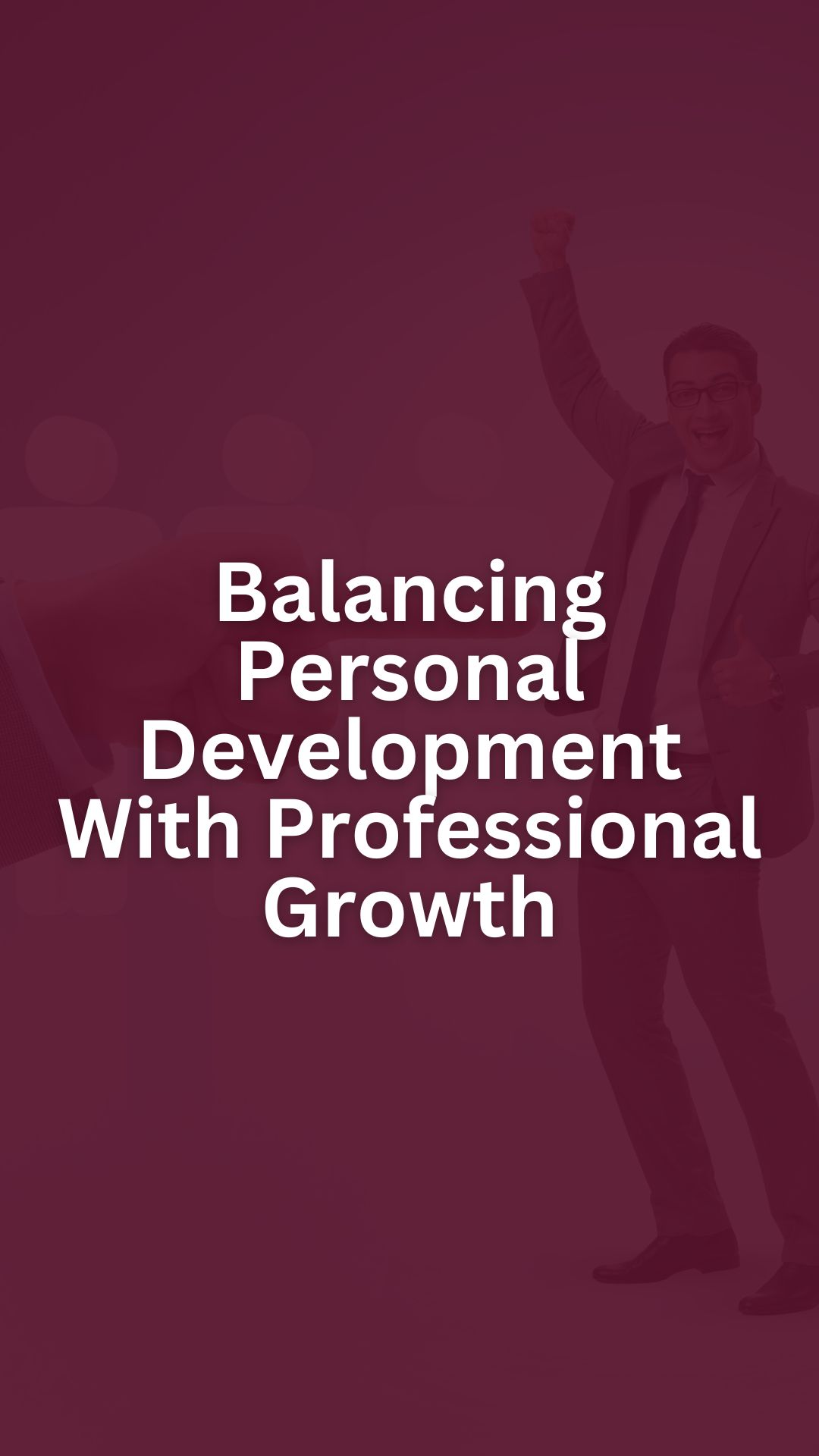Thinking about a career in Human Resources? You’re in the right place! The HR field is growing and offers many opportunities for those who enjoy working with people and solving problems.
To start a career in HR, you need to focus on getting the right education and experience. A degree in Human Resources, Business, or a related field is often required.
Internships and entry-level positions can give you valuable hands-on experience.
Networking is key in HR, just like in any other field. Attend industry events, join professional associations, and connect with HR professionals on platforms like LinkedIn.
Your network can open doors and provide support throughout your career.

Understanding the Basics of Human Resources
Human Resources (HR) is a vital part of any organization. It involves managing people, processes, and policies to ensure a smooth workplace.
You will handle hiring, training, employee relations, and benefits administration.
Key Responsibilities:
- Recruiting new employees
- Onboarding and training
- Managing employee benefits
- Ensuring legal compliance
HR professionals often need strong communication skills. You’ll be the link between the company and its employees.
So, it’s crucial to be able to listen and convey messages clearly.
Important Skills:
- Communication: Speaking, writing, and listening
- Organization: Keeping records and schedules in order
- Empathy: Understanding others’ points of view
- Problem-Solving: Finding solutions quickly and effectively
Understanding employment laws is a big part of HR. You will ensure the company follows labor laws and workplace safety regulations. This helps prevent legal issues and promotes a fair work environment.
Education in HR often includes degrees or certifications. Many HR roles require at least a bachelor’s degree in Human Resources, Business, or a related field.
Professional certifications, such as SHRM-CP or PHR, can enhance your qualifications.
Typical HR Degrees:
- Bachelor’s in Human Resources
- Master’s in Human Resource Management
- Business Administration degrees with HR focus
Starting a career in HR means gaining experience. Internships or entry-level positions are good ways to learn.
These roles provide hands-on experience and valuable insights into HR functions.

Educational Pathways to a HR Career
To start a career in Human Resources (HR), there are specific educational paths you can take. These include degrees in Human Resources and relevant certifications that can boost your resume.
Human Resources Degrees
Earning a degree in Human Resources is a great way to start. Bachelor’s degrees in Human Resources or Business Administration with a focus on HR are common.
Courses often cover topics like recruitment, employee relations, and labor laws.
Many universities offer Master’s degrees in Human Resources, which can open doors to higher positions. This advanced degree usually delves deeper into strategic management, organizational development, and advanced HR practices.
An online degree can provide flexibility if you need to balance work and study. Associate degrees are also available for entry-level positions.
Relevant Certifications
Certifications can make you stand out to employers. The Professional in Human Resources (PHR) and Senior Professional in Human Resources (SPHR) are popular certifications from the HR Certification Institute.
The SHRM Certified Professional (SHRM-CP) and SHRM Senior Certified Professional (SHRM-SCP), offered by the Society for Human Resource Management, are also highly respected.
To get certified, you need to pass an exam and sometimes have work experience.
Studying for these exams can boost your knowledge and confidence in HR practices.
Remember, the right certification can give you a competitive edge in your HR career.

Gaining Early HR Experience
Jumpstarting your career in Human Resources (HR) often begins with hands-on experience. This experience can come from internships, volunteer work, or entry-level positions.
Internships and Volunteer Work
Internships offer real-world experience and help you understand HR daily tasks. Look for HR internships with companies or organizations that align with your interests.
Internships allow you to apply classroom knowledge to practical situations.
Volunteering in HR roles at non-profits or community organizations also provides valuable experience.
You might help with recruiting, organizing events, or managing employee records.
This experience not only builds your resume but also helps you develop a network within the HR field.
Benefits of Internships and Volunteer Work:
- Gain practical skills
- Build a professional network
- Understand workplace culture
- Enhance your resume
Entry-Level HR Positions
Starting in an entry-level HR position is a great way to dive into the HR world. Roles like HR assistant, coordinator, or administrative support are common starting points.
These positions involve tasks like scheduling interviews, managing employee files, and assisting with HR projects.
In these roles, you get to learn about HR policies, employee relations, and recruitment processes.
You’ll also develop essential skills such as communication, organization, and problem-solving.
Entry-level positions are often stepping stones to more advanced HR roles.
Common Entry-Level HR Titles:
- HR Assistant
- HR Coordinator
- HR Administrative Support
Skills Developed:
- Communication
- Organization
- Problem-solving

Core HR Skills and Competencies
To thrive in a Human Resources career, you must master vital skills and competencies. These include communication abilities, legal knowledge, and strategic planning.
Communication and Interpersonal Skills
Effective communication is key in HR. You’ll need to convey information clearly to both employees and management.
Active listening is just as important. It shows you understand others’ concerns and helps build trust.
Being approachable can make coworkers feel comfortable discussing sensitive issues.
It’s also critical to mediate conflicts and provide constructive feedback.
Excellent written communication helps in crafting clear policies and emails.
Knowledge of Employment Law
Knowing employment law is a must for HR professionals. You need to be familiar with laws related to hiring, wages, and workplace safety.
This knowledge helps protect the company and its employees.
You should stay updated on changes in regulations like the Fair Labor Standards Act and the Family Medical Leave Act.
Understanding these laws helps you develop compliant policies and avoid legal issues.
Strategic Thinking and Planning
Strategic thinking allows you to align HR goals with the company’s objectives. This involves analyzing current workforce trends and predicting future needs.
You’ll need to plan for hiring, training, and retention.
It’s important to find ways to improve employee satisfaction and productivity.
This can include creating leadership development programs.
Effective strategic planning can help the company grow and succeed.

Building a Professional Network in HR
Creating a strong network in Human Resources can open many doors and provide valuable support throughout your career. Let’s explore some effective ways to build this essential network.
Attending HR Workshops and Conferences
Workshops and conferences are fantastic places to meet people in the HR field. You’ll hear from experts, learn new trends, and participate in group discussions.
These events are perfect for connecting with like-minded professionals.
Tip: Bring business cards and be ready to introduce yourself.
Exchange contact information with at least three new people.
Follow up with them after the event through email or LinkedIn to keep the conversation going.
Benefits:
- Learning up-to-date HR practices
- Sharing experiences with peers
- Finding potential mentors or partners
Action Steps:
- Research upcoming events: Look for local, regional, or national HR conferences.
- Register and plan: Schedule your time to attend key sessions and meetings.
- Engage actively: Participate in Q&A sessions and networking breaks.
Joining HR Professional Associations
Joining a professional association is a great way to stay connected with the HR community.
Associations offer various resources, including training, networking events, and certification opportunities.
Look for well-known groups like the Society for Human Resource Management (SHRM) or the HR Certification Institute (HRCI).
Membership provides access to exclusive events, webinars, and local chapters where you can meet other HR professionals.
Advantages:
- Access to job boards and career resources
- Professional development opportunities
- Connections with experienced HR leaders
Steps to Join:
- Choose an association: Research and select one that aligns with your career goals.
- Sign up for membership: Complete the registration process online.
- Participate in activities: Attend meetings, webinars, and other events to meet new people and learn.

Creating a Stellar HR Resume and Cover Letter
Creating a standout resume and cover letter is crucial for landing a role in Human Resources.
Resume Tips:
- Contact Information: Include your name, phone number, and email address at the top.
- Professional Summary: A brief, powerful statement about your HR skills and experience.
- Experience: List jobs relevant to HR. Include job titles, companies, and dates.
- Education: Detail your degrees and any HR-related coursework.
- Skills: Highlight key abilities like communication, problem-solving, and knowledge of HR software.
Cover Letter Tips:
- Introduction: Start with a greeting to the hiring manager.
- First Paragraph: Mention the position you’re applying for and how you found it.
- Skills Highlight: Share specific HR skills and experiences that match the job description.
- Closing: Express enthusiasm for the role and request an interview. Finish with a polite closing.
Use bullet points and bold text for key information. Make sure each document is easy to read and free of mistakes. Good luck!

Navigating HR Job Interviews
To excel in HR job interviews, it’s vital to understand what questions you might face and how to prepare effectively. This ensures that you can present yourself as the best candidate for the position.
Common Interview Questions
Expect to answer questions about your experience and how you handle various HR scenarios. For instance:
- “Tell us about a time you resolved a conflict at work.”
- “How do you stay updated with HR laws and regulations?”
- “Describe a successful recruitment strategy you’ve implemented.”
These questions check your problem-solving skills, knowledge of HR practices, and ability to adapt to new information.
Be ready to discuss your strengths and weaknesses as an HR professional.
It’s also a good idea to have examples ready that showcase your leadership and teamwork abilities.
Interview Preparation Techniques
Start by researching the company’s values and culture. Understand what they prioritize in their HR policies. This helps you align your answers to their objectives.
Practice your responses to common HR questions. Use the STAR method (Situation, Task, Action, Result) to structure your answers clearly and concisely.
Create a list of questions to ask the interviewer. This shows your interest in the role and the company.
Questions could include:
- “What are the biggest challenges the HR team is currently facing?”
- “How does the company support ongoing HR training and development?”
Dress professionally, arrive on time, and bring extra copies of your resume. Confidence and preparation can make a big difference in how you’re perceived.

The Role of Technology in HR
Technology has changed the way HR professionals do their jobs. It makes tasks easier, helps manage data, and improves decision-making.
Two key areas where technology plays a big part are HR Information Systems and Data Analytics.
HR Information Systems
HR Information Systems (HRIS) are software tools that help manage employee data. They store information like employee records, payroll, and benefits.
Using an HRIS can save a lot of time. Instead of handling paperwork, you can find everything you need in one place with just a few clicks.
These systems also help with recruiting and onboarding.
You can track applications, schedule interviews, and even do background checks. It’s all automated, which speeds up the process.
Plus, HRIS can help keep data secure. Only authorized people can access sensitive information, which is crucial for any company.
Lastly, HRIS offers reporting features. You can generate reports on employee performance, turnover rates, and other important metrics. This makes it easier to make informed decisions about hiring and other HR activities.
Data Analytics in Human Resources
Data Analytics in HR is about using data to make better decisions. It helps you understand trends and patterns in your workforce.
For example, you can see what skills are most needed, which employees are at risk of leaving, and how to improve employee satisfaction.
With data analytics, you can also measure the effectiveness of your HR initiatives.
Are your training programs working? Is your hiring process efficient? Analytics can give you clear answers to these questions.
Predictive analytics is another powerful tool. It can forecast future trends like employee turnover or the need for new hires.
This helps you plan ahead and address issues before they become problems.
In short, data analytics makes HR more strategic. It’s not just about gut feelings anymore. You have real data to back up your decisions. This leads to better outcomes for both the company and its employees.

Advancing Your HR Career
To grow your HR career, focus on continuing education and seeking mentorship and coaching.
Continuing Education
Staying updated with HR trends is crucial. You should consider enrolling in certification programs like SHRM-CP, SHRM-SCP, or PHR.
These certifications show your expertise and dedication.
Workshops and seminars are great for learning new skills.
Many universities offer online courses in HR management. You can also explore specific topics like conflict resolution, employee engagement, or HR technology to deepen your knowledge.
Networking events and industry conferences offer amazing opportunities to learn and connect with other professionals.
They can lead to job opportunities and help you stay updated with industry changes.
Seeking Mentorship and Coaching
Finding a mentor or coach can guide your career. Look for experienced HR professionals willing to share their knowledge.
Mentors can help you navigate challenges and offer advice based on their experiences.
Join HR associations and groups to meet potential mentors.
These organizations often have formal mentorship programs. You can also connect with people through LinkedIn or at industry events.
Coaching sessions can help you identify strengths and areas for improvement.
Coaches provide personalized advice and strategies for career growth. Investing in a coach might be one of the best decisions for your professional development.

Specialization Opportunities within Human Resources
In Human Resources, you can focus on specific areas to develop unique skills and expertise. This allows you to find a role that matches your interests and strengths in the HR field.
Talent Acquisition Specialist
As a Talent Acquisition Specialist, you focus on finding the right people for the right roles.
You spend time sourcing candidates, using job boards, social media, and recruitment events. Your goal is to identify top talent and bring them into the company.
You will also conduct interviews and coordinate with hiring managers.
You need to understand the job requirements and company culture to find good matches. Your efforts help build strong teams that contribute to the company’s success.
Networking is key in this role.
Building relationships with candidates and industry professionals can give you access to a wider talent pool. Being organized and staying updated on hiring trends will make you more effective in this position.
Compensation and Benefits Manager
In this role, you manage employee compensation and benefits programs.
This includes setting salaries, designing bonus plans, and overseeing health insurance and retirement plans.
Your work ensures employees are fairly compensated and receive essential benefits.
You analyze market data to keep the company’s pay rates competitive.
Understanding labor laws is also crucial to ensure compliance with regulations.
Your job includes balancing the company’s budget with the need to attract and retain talent.
Communication skills are important here.
You explain complex benefits packages to employees, making sure they understand their options and feel valued.
By managing these programs, you help maintain employee satisfaction and loyalty.

Balancing Personal Development With Professional Growth
Finding a balance between personal development and professional growth can be exciting and rewarding.
Personal development involves improving yourself. This can mean learning new skills, hobbies, or habits that make you a better person.
Professional growth focuses on your career. This might include getting promotions, taking on more responsibilities, or expanding your network.
It’s important to set clear goals. Write down what you want to achieve in both areas. Use a table like the one below to stay organized.
| Personal Goals | Professional Goals |
|---|---|
| Learn a new language | Gain a new certification |
| Exercise regularly | Attend industry conferences |
| Read one book a month | Improve leadership skills |
Prioritize your time wisely. Make a schedule that includes both personal and professional activities.
For example, you could spend mornings reading a book (personal) and afternoons taking an online course (professional).
Take breaks to recharge. Time away from work can lead to fresh ideas and energy. Balance is key to preventing burnout and staying happy.
Build a support system.
Whether it’s mentors at work or friends and family, having people to encourage you can make things easier.
Stay flexible. Sometimes, you might need to focus more on one area than the other. Adjust as needed without feeling guilty.
Remember to celebrate your achievements.
Whether it’s a personal milestone or a professional success, every step forward is worth recognizing.

Frequently Asked Questions
Starting a career in Human Resources can be an exciting journey. Here are some common questions and answers that might help you get on the right track.
What are the first steps to getting into an HR career for those with no prior experience?
Begin by researching online HR courses or certifications.
Volunteering or interning at companies can also give you insight into HR tasks. Networking with professionals in the field can provide valuable connections and advice.
What strategies can you use to transition into HR later in life, such as starting at 40?
Consider taking specialized courses or gaining certifications in HR.
Leveraging your past work experience in related areas like administration or management can be beneficial. Look for entry-level positions open to career changers.
How do you secure an entry-level position in HR, and what do those roles typically involve?
Apply for roles such as HR assistant or coordinator.
These jobs usually involve tasks like recruiting, employee onboarding, and managing records. Tailor your resume to highlight relevant skills and any HR training or certifications.
What pathways are available for someone interested in HR but lacking a formal degree?
Certifications from recognized HR organizations can boost your credibility.
You can also gain experience through internships, temporary staffing agencies, or volunteer positions in HR departments.
Where can aspiring HR professionals gain applicable HR experience without currently being employed?
Seek out volunteer opportunities with non-profits or community organizations.
You might also consider internships or part-time positions that involve HR tasks. Freelancing and project-based work can provide hands-on experience as well.
How can one begin self-education in HR fundamentals to prepare for a career in human resources?
Utilize online learning platforms that offer HR courses.
Reading HR blogs, articles, and books can enhance your knowledge.
Join professional HR groups and participate in webinars and discussions to keep up with the latest trends and practices.